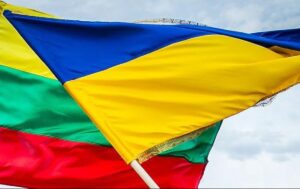
The Lithuanian Ambassador to Ukraine will resume work in Kyiv, Lithuanian Foreign Minister Gabrielius Landsbergis said.
“Russian ambassador was asked to leave Lithuania. Lithuanian ambassador in Ukraine is coming back to Kyiv. That is the Lithuanian decision made today,” he said on Twitter on April 4.
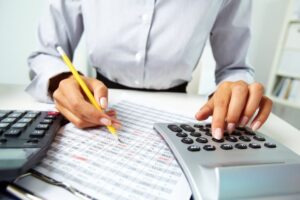
Prime Minister of Ukraine Denys Shmyhal says that more than 150,000 businesses are already switching to a new taxation system – 2% of turnover.
“More than 150,000 businesses are already switching to the new taxation system – 2% of turnover,” Shmyhal said in his address on Monday evening.
Also, according to him, the authorities have already received 1,500 applications for the relocation of Ukrainian manufacturing enterprises, and more than 100 enterprises have already moved and are working.
“The sowing campaign has begun. Now it goes to almost all regions of the country. There are seeds, fertilizers, fuel. The state provided farmers with funding for more than UAH 20 billion. Loans for everyone at 0%,” he said.
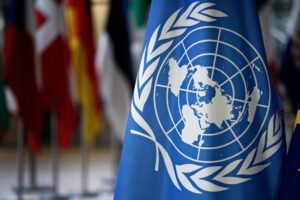
Losses among civilians from February 24, when Russia started the war against Ukraine, until 24:00 on April 3, 2022, amounted to 3527 civilians (3455 in the report a day earlier), including 1430 dead (1417), reports the Office of the UN High Commissioner for human rights on Monday.
“OHCHR believes that the actual figures are much higher as information is delayed from some areas of intense fighting and many reports are still awaiting confirmation,” the document says.
According to him, this applies, for example, to Mariupol and Volnovakha (Donetsk region), Izyum (Kharkiv region), Popasna (Luhansk region), Irpin (Kyiv region), where there are reports of numerous civilian casualties. They are subject to further verification and are not included in the above statistics.
“The majority of civilian deaths or injuries were caused by the use of explosive devices with a wide area of effect, including shelling from heavy artillery and multiple launch rocket systems, as well as rocket and air strikes,” the report says.
According to confirmed UN data, 297 men, 202 women, 40 boys and 22 girls died, while the sex of 59 children and 810 adults has not yet been determined.
Among the 2,097 injured, 42 are girls and 38 boys, as well as 98 children whose gender has not yet been determined.
Compared to the previous day, seven children were injured, according to the UN.
OHCHR indicates that in Donetsk and Luhansk regions, as of midnight on April 4, there were 405 (401) dead and 793 (784) injured in government-controlled territory, and 67 (67) dead and 253 (252) injured in territory controlled by self-proclaimed “republics”.
In other regions of Ukraine under government control (in Kyiv, as well as in Zhytomyr, Zaporozhye, Kiev, Sumy, Odessa, Mykolaiv, Kharkiv, Kherson, Dnipropetrovsk, Cherkasy and Chernihiv regions), the UN recorded 958 (949) dead and 1051 (1002) injured .
The report also states that, according to the Office of the Prosecutor General of Ukraine, as of 08:00 on April 4, 161 (158) children were killed and 264 (258) were injured.
The increase in indicators in this report compared to the figures in the previous report should not be attributed only to new cases that occurred on April 3, since OHCHR also verified a number of cases that occurred in previous days during the day, the document specifies.
Main trade partners of Ukraine in % from total volume (import from other countries to Ukraine) in 2021

SSC of Ukraine
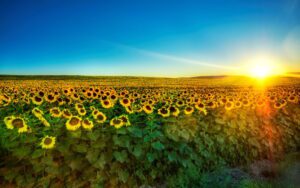
The state recommends that farmers sow crops with the maximum unit value, so that in the face of problems in the country with the export of agricultural products due to the military invasion of the terrorist country of the Russian Federation, they receive maximum revenue from the sale of relatively small batches of agricultural raw materials, according to the website of the department with reference to its head Nikolai Solsky.
At the same time, the Minister of Agrarian Policy and Food on the air of the “UA-marathon” on Monday advised agricultural producers to grow high-margin and relatively easy-to-logistics sunflower, rapeseed and soybeans. According to the agency, the biggest challenge for the Ukrainian agro-industrial complex remains the issue of exporting agricultural crops from the country.
“A significant limitation of export logistics opportunities directly affects how much grain farmers and agrarians can sell – respectively, how much money they need to get for wages, sowing, payments to tenants, and the like. This is the most difficult thing,” the minister said. According to Solsky, due to Russia’s military aggression in Ukraine, the Ministry of Agrarian Policy expects in 2022 a reduction in the sown area of spring crops by 20.5%, or 3.5 million hectares – to 13.44 million hectares from 16.92 million hectares in 2021 year.
The Minister also pointed to the presence of a certain forecasted shortage of fuel, but at the moment Ukrainian farmers have access to fuel for sowing. “It is clear that the sowing season is just beginning, and the amount of fuel needs to be increased, but in a market economy with such an enterprising conscious people as ours, especially with farmers, a solution will be found,” he stressed.
At the same time, it is clarified that the priorities of the Ministry of Agrarian Policy at present are the establishment of logistics, enabling farmers to continue working and earning income, keeping businesses from closing, providing shareholder the opportunity to receive rent, as well as employment of workers in the agro-industrial complex. Solsky emphasized in the message that today all states need to adequately and deeply understand the complexity of the situation and make every effort to stop the armed aggression of the Russian Federation. “After all, any continuation of the war is a rise in the cost of products for all countries, including even those who had not thought about it before,” the minister summed up.
As reported, as of April 1, Ukraine sowed 0.60 million hectares with basic agricultural crops, which is 4.4% of the 13.44 million hectares planned for the current season.
Sowing of spring crops has already started in 21 regions of Ukraine, whereas last year 15 regions started sowing on the same date. The total area sown with spring barley as of April 1 amounted to 327.3 thousand hectares, spring wheat – 81.0 thousand hectares, peas – 62.3 thousand hectares, oats – 50.1 thousand hectares, sunflower – 33.7 thousand hectares ha, sugar beet – 30.6 thousand ha, soybean – 10.4 thousand ha, spring rapeseed – 7.6 thousand ha. Due to the military aggression of the Russian Federation in Ukraine, a decrease in the sown areas of high-margin crops (sunflower and corn) is expected this season, while increasing the sown areas of crops that are easier to produce, but important in terms of food security – peas, barley and oats.
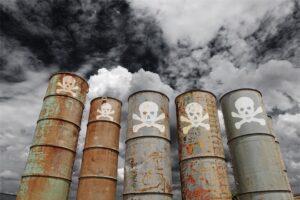
Almost all inhabitants of the Earth breathe air, the level of pollution of which poses a threat to their health, according to data from the World Health Organization (WHO).
“Almost all the inhabitants of the planet (99%) breathe air that is polluted in excess of acceptable quality standards established by WHO and therefore poses a threat to health,” the organization said in a press release to the air quality report. It notes that people everywhere breathe “air with high concentrations of fine particulate matter and nitrogen dioxide, with the highest levels of exposure in low- and middle-income countries.”
According to the report, air pollution can lead to serious health problems. For example, particulate matter enters the human lungs and enters the circulatory system, which can lead to cardiovascular and respiratory diseases, in particular asthma.
WHO is calling on authorities around the world to step up action to improve air quality, including switching to clean household energy and stricter vehicle emissions standards.
The WHO Air Quality Report and Database 2022 has been released ahead of World Health Day, which is observed annually on 7 April.